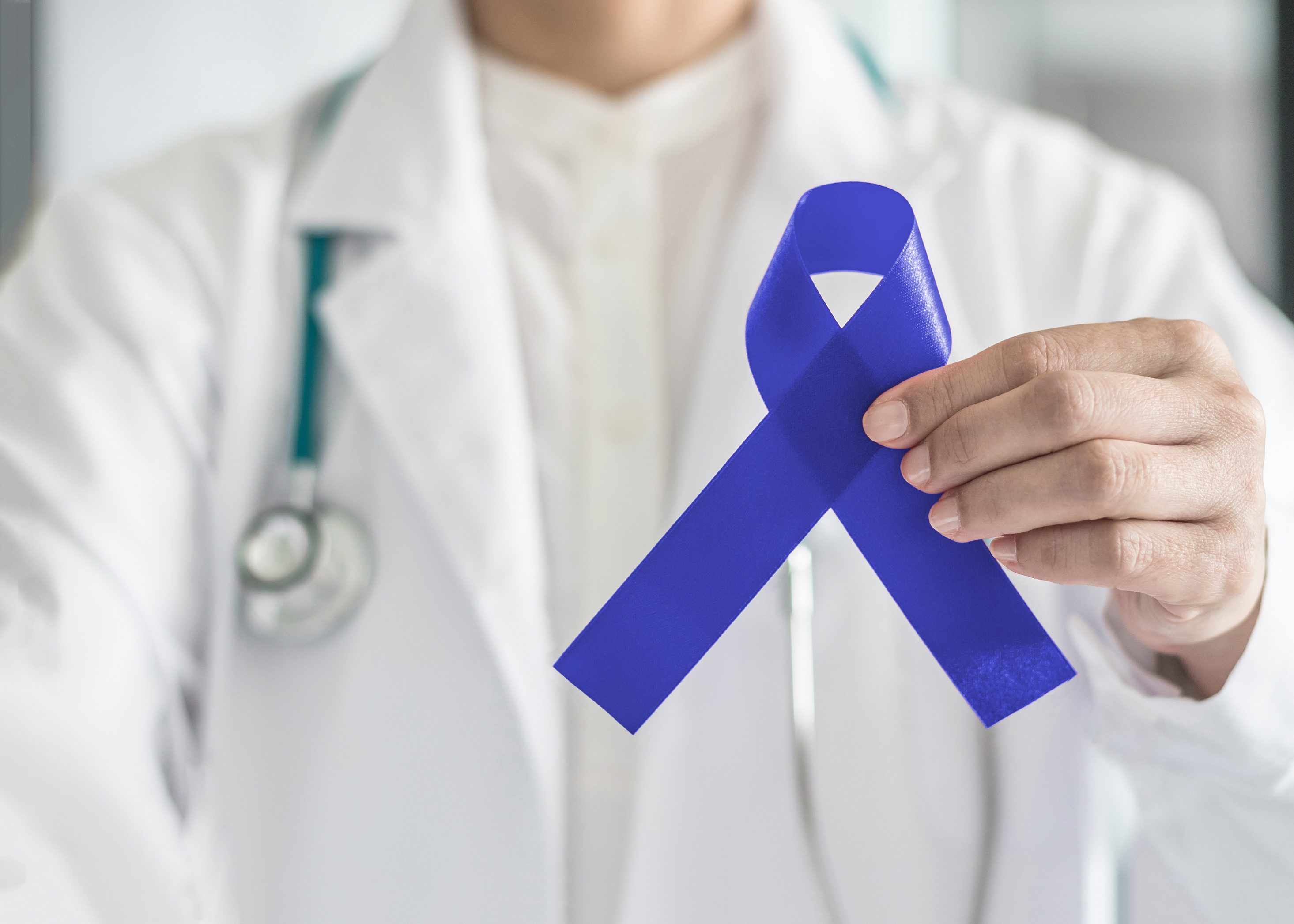
Health Partnership Clinic, an FQHC with four clinic sites in Olathe, Ottawa, Paola, and Shawnee Mission, serves a population of more than 15,000 patients each year, the majority of which are underserved and uninsured. Serving a patient population facing additional social drivers of health and barriers to care creates challenges in managing and screening for chronic disease. Through their work with the Kansas Healthcare Collaborative and KDHE in the CDC's Colorectal Cancer Control program, Health Partnership Clinic has developed innovative strategies to increase access to care and increase screening rates in their underserved patient population.
Health Partnership Clinic provides colorectal cancer screening options including annual fecal immunochemical test (FIT) kits and referrals for CT colonographies to all patients aged 45 and older regardless of insurance status. A sliding fee scale is offered for those who qualify based on income and household size, making both screening options low cost to no cost for patients.
Most patients’ screening tests are negative and require no follow up testing. However, prior to the pilot program in collaboration with KU, uninsured patients with positive screening tests had few or no opportunities for necessary follow-up, diagnostic colonoscopies due to the high out of pocket costs.
The clinic workflow is also essential to the clinic’s success. The medical assistant asks all patients who are 45 years or older the date of their last colorectal cancer screening. When a patient is due for a screening, they are given a fecal immunochemical (FIT) test kit. Less often, a patient may be referred to Olathe Medical Center for a CT colonography, which is provided as an in-kind service. Health Partnership Clinic offers a sliding fee scale for patients who qualify based on income and household size, making both screening options financially feasible.
Patients with negative FIT results do not require follow up and will be due for their next screening in one year. Patients with negative CT colonography results do not require follow up and will be due for their next screening in five years. Patients with positive FIT or CT colonography results require follow-up, diagnostic colonoscopies for definitive results. Patients without a history of colorectal- or gastrointestinal-related health conditions are referred to KU, where the procedure is provided at low-cost to no-cost to the patients as part of a pilot program between Health Partnership and KU.
The pilot program with KU accomplished two simple but significant goals. Uninsured patients who would normally be unable to obtain follow-up diagnostic colonoscopies due to the cost barrier were able to have the procedure performed because of the new program. The wait time between the positive FIT or CT colonography results and the follow-up, diagnostic colonoscopies was much shorter, average of six weeks, compared to the typical 8 months or more wait time for uninsured patients needing the procedure prior to the relationship with KU.
Program Statistics and Results
- 25 patients were eligible for screening
- 100% of referred patients were uninsured
- 92% of all patients being referred into the program were Hispanic
- 89% of the patients referred into the program received services
- 4 patients were scheduled
- 5 patients addressed colorectal screening through other means
- 16 uninsured patients received follow-up diagnostic colonoscopies at KU after initial positive FIT or CT colonography screening results
- 8 patients had polyps removed
- No patients were diagnosed with cancer
Though the program has been a success for Health Partnership Clinic, the sustainability of the program relies upon funding and partnership with KU for providing reduced or no cost colonoscopies. Without another option for affordable follow-up colonoscopy after positive screening, the program would not be sustainable. Health Partnership hopes to see a future program like Early Detection Works in which cancer screenings follow-up procedures like colposcopy are paid for through program funding, but for colorectal cancer follow-up procedures. Until then, Health Partnership will continue to rely on community partnerships like their relationships with KU and Olathe Medical Center to provide much needed screening and follow-up procedures for their uninsured low-income population.
